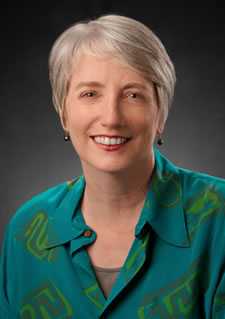CDC Women in STEM Careers - Barbara Mahon, MD
Physician
National Center for Emerging and Zoonotic Infectious Diseases, CDC

A high school athlete who played basketball and softball, Barbara Mahon was also a soccer goalie in college who even went to nationals. After earning a college fellowship, she decided to make sports the topic of her research. That’s when she went to Africa and discovered a new passion.
Of her career in epidemiology, she says, “It’s really about being a disease detective.” Barbara has recently assisted Disease Detectives working in Ebola Treatment Units through the development of a safety course designed for these professionals in West Africa.
African Adventure Opens up New Dreams
I moved a lot as a child and attended many kinds of schools in Italy, Venezuela, and the United States. My father was an advertising executive on Madison Avenue in New York, and my mother was an artist. They were always interested in travel. The exposure to different cultures broadened my horizons and gave me a flexibility that has come in handy wherever I have worked.
I always liked science. So I earned a bachelor’s in biology from Harvard University, thinking I would be a field biologist. After college I was awarded a one-year fellowship to research women’s sports in Africa. I visited Kenya, Sudan, Tanzania, Uganda, and Zimbabwe. Using sports as a window through which to look at societies and cultures, I studied what their successes in sports could teach the world. The topic spoke to me both as an athlete and a biologist. For instance, genes help explain why some people are good runners.
Meanwhile, I started to understand what you can do working in medicine and public health. It was so clear how big the health problems were.
"I was excited to think about helping to improve people’s lives, and that's when I decided to go to medical school and become a doctor."
Searching for College by Major, Cost, Location
I studied medicine at the University of California, San Francisco (UCSF) and completed a residency in pediatrics there too before studying epidemiology at Berkeley. My family didn’t have a lot of money, so they were worried about the cost of medical school. Because UCSF is a state school, the tuition was affordable. I had been working for a couple of years and was financially independent. Through loans and savings, I was able to pay for medical school myself.
I really liked working with children, so I became a pediatrician. I also became an infectious disease epidemiologist, meaning that I study the patterns, causes, and effects of health and disease in groups or populations.
At CDC I am deputy chief of the Enteric Diseases Epidemiology Branch, where I get to do a variety of work to keep the public’s food and water safe. It includes responding to big disease outbreaks, such as one of the deadliest ever in the United States—caused by bad cantaloupes.
Once while traveling on an airplane to help in a foodborne disease outbreak, I saw the movie “Outbreak.” After watching the movie I thought we’re not nearly so glamorous as the actors. Also, our projects involve teamwork with many others, especially during an outbreak or emergency. We’re not just a bunch of people working alone in a room trying to solve each case, like you see in the movies.
Our teamwork helps prevent illnesses and save lives—a huge thrill!
Over the years I’ve worked half a day each week as a volunteer pediatrician for low-income Latin American immigrants. I learned Spanish while living abroad as a child, and it has been an important part of my clinical life. In fact, I would like to get more involved in international public health issues.
I love working with young people—not only as a doctor. I would also enjoy working with students, medical residents, young epidemiologists, or anyone just starting their career. I like to help people learn what they need to know to get where they want to go.
Advice to Girls and Young Women
- Get a good education. Learn to write clearly and well. Push yourself to think beyond the details of a project to understand the big picture. I read somewhere that data isn’t information, information isn’t knowledge, and knowledge isn’t wisdom. I think it’s important to figure out not just what the numbers are, but what they mean.
- Trust your own process. You don’t have to go in a straight line toward a certain career goal. My path has definitely zig-zagged. I have worked in academia, private industry, and government. Along the way I have worked on everything from vaccines to diseases. I couldn’t possibly have mapped this out. But the journey has been interesting and fulfilling. During each part of it I have been able to do good work that I thought was worthwhile.
- Page last reviewed: April 24, 2015
- Page last updated: April 24, 2015
- Content source:


 ShareCompartir
ShareCompartir